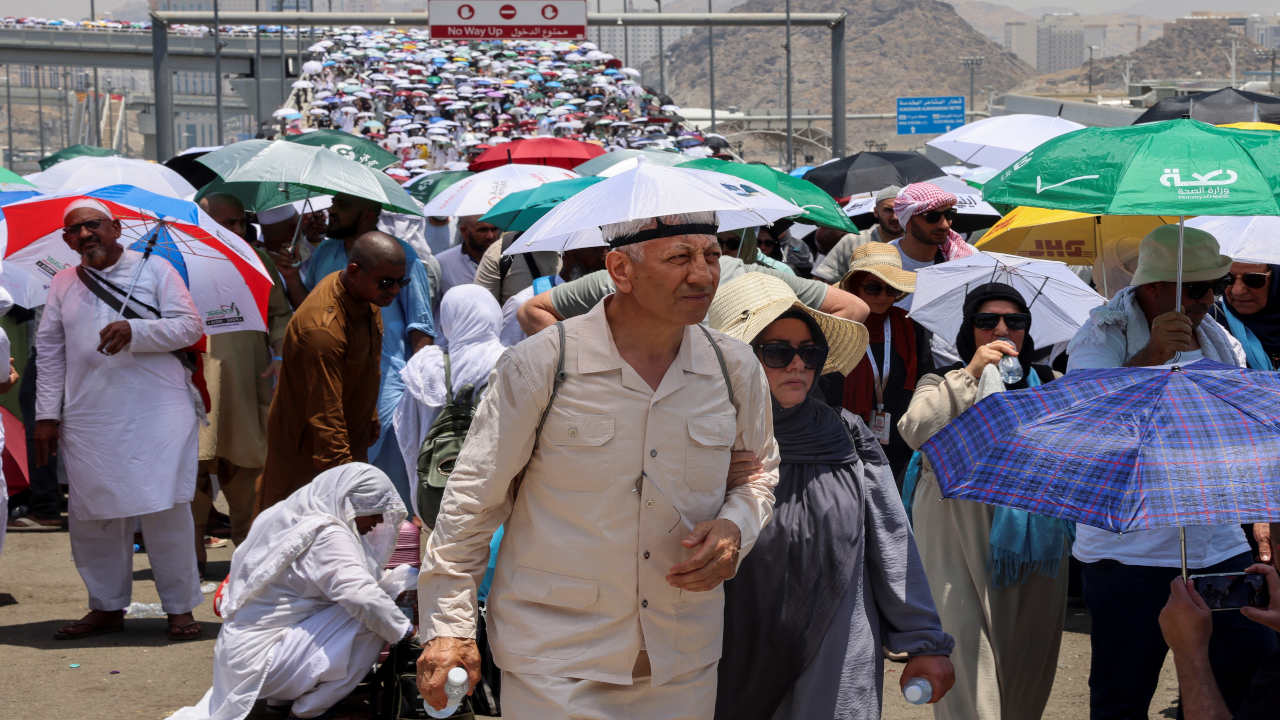
Heatwave Amplified by Climate Change Claims Over 1,300 Lives During Hajj in Saudi Arabia
A recent analysis by ClimaMeter disclosed that temperatures along the Hajj pilgrimage route soared to an oppressive 47°C, with peaks reaching up to 51.8°C at Mecca's Great Mosque. A team of European scientists has determined that climate change significantly intensified the heatwave, resulting in the deaths of over 1,300 pilgrims during this year's Hajj in Saudi Arabia.
According to the ClimaMeter findings, the temperatures would have been approximately 2.5°C (4.5°F) cooler without the influence of human-induced climate change. By examining satellite data and comparing weather patterns from 1979-2001 and 2001-2023, scientists concluded that natural variability alone could not account for the severity of this heatwave.
The study also highlighted a shift in the timing of extreme heatwaves in Saudi Arabia, with June now experiencing more intense temperatures than historically recorded. This shift poses significant risks for future Hajj pilgrimages, which are determined by the Islamic lunar calendar and can occur during the summer months.
Davide Faranda, one of the scientists involved in the research, stressed the direct connection between fossil fuel combustion and the lethal heat impacting vulnerable pilgrims. The study's results are consistent with previous research indicating that heatwaves globally are now, on average, 1.2°C hotter than in preindustrial times.
While medical authorities often attribute fatalities to heat-related illnesses rather than the heat itself, experts believe the extreme temperatures were a significant factor in many of the 1,300 deaths during the Hajj.
The alarming situation has led to calls for action, with Mohamed Adow, director of Power Shift Africa, referring to it as a "wake-up call" for Saudi Arabia, one of the world's largest oil producers. Critics highlight that Saudi Aramco, the state oil company, is the world's largest corporate greenhouse gas emitter, contributing over 4% of historical carbon emissions.
As climate change continues to drive extreme weather events, ensuring the safety and sustainability of large-scale religious gatherings like the Hajj becomes increasingly challenging, necessitating urgent adaptation and mitigation measures.